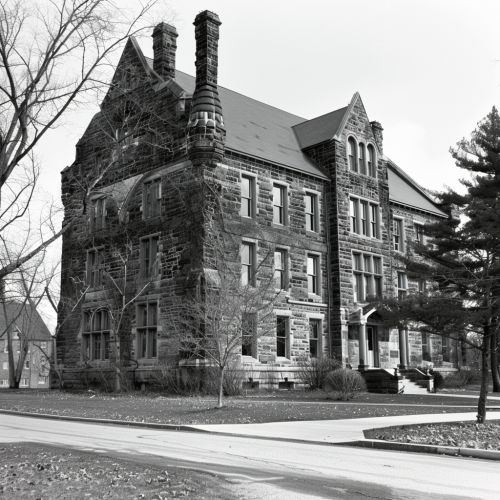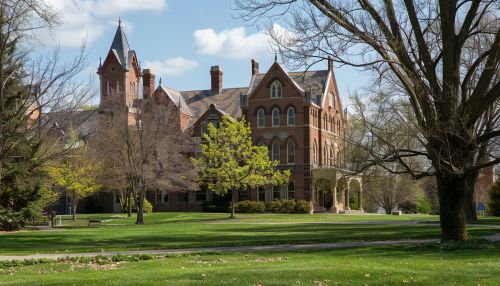Knox College
History
Knox College was founded in 1837 by anti-slavery advocates led by George Washington Gale, a Presbyterian minister from New York. Gale and his colleagues were seeking to establish a higher learning institution in the wilderness of Illinois that would serve to counter pro-slavery sentiment prevalent in the southern part of the state. The college was named after Henry Knox, the first United States Secretary of War, who had died in 1806. The founders of Knox College believed in the importance of a liberal arts education for the development of individual character and the advancement of democratic values.


The cornerstone for the first building, Old Main, was laid in 1837, and the college opened for classes in 1841. Old Main remains in use today and is a National Historic Landmark. The college was coeducational from its founding, a rarity in higher education at the time. In the early years, students were required to participate in manual labor as part of their education, a practice known as the Manual Labor Movement.
During the Civil War, Knox College was a center of the Abolitionist movement. The college's fifth president, Jonathan Blanchard, was a prominent abolitionist, and the college was a stop on the Underground Railroad. The college's commitment to social justice has continued throughout its history, with a strong emphasis on service learning and community engagement.
Academics
Knox College offers a liberal arts education with a curriculum that emphasizes interdisciplinary study, independent research, and international experience. The college offers more than 60 majors, minors, and pre-professional programs, including distinctive programs in creative writing, environmental studies, and neuroscience. Knox's academic calendar is divided into three 10-week terms, a system known as the "3-3" calendar.
The college has a student-faculty ratio of 10:1, and the average class size is 16. The college's faculty are active scholars and artists, and 98% hold the highest degree in their field. Knox College is accredited by the Higher Learning Commission.
Knox College is known for its commitment to experiential learning. The college's Power of Experience Grant provides all students with up to $2,000 to support a research project, study abroad experience, internship, or community service project. The college also offers a number of distinctive programs that provide opportunities for hands-on learning, including the Repertory Theatre Term, the Knox Farm, and the Prairie Fire Biodiesel Project.
Campus
The Knox College campus is located in Galesburg, Illinois, a small city in the western part of the state. The campus covers 82 acres and includes a mix of historic and modern buildings. The centerpiece of the campus is Old Main, the oldest building on campus and a National Historic Landmark.
The campus is home to a number of distinctive facilities, including the Ford Center for the Fine Arts, the Umbeck Science-Mathematics Center, and the E. & L. Andrew Fitness Center. The campus also includes a 700-acre natural area known as the Green Oaks Biological Field Station, which serves as a living laboratory for students in the sciences.
Student Life
Knox College has a diverse student body, with students from 48 states and 51 countries. The college offers more than 100 student organizations, including academic clubs, service organizations, and cultural groups. The college's athletic teams, known as the Prairie Fire, compete in the NCAA Division III Midwest Conference.
Knox College is a residential college, with 95% of students living on campus. The college offers a variety of housing options, including traditional residence halls, theme houses, and Greek housing. The college's dining services are committed to sustainability, with a focus on locally sourced and organic foods.
Notable Alumni
Knox College has produced a number of notable alumni, including Pulitzer Prize-winning poet Carl Sandburg, feminist pioneer Ellen Browning Scripps, and former United States Senator and Vice President of the United States, Adlai Stevenson II.
See Also
Liberal Arts Colleges in the U.S. Higher Education in Illinois The Underground Railroad
